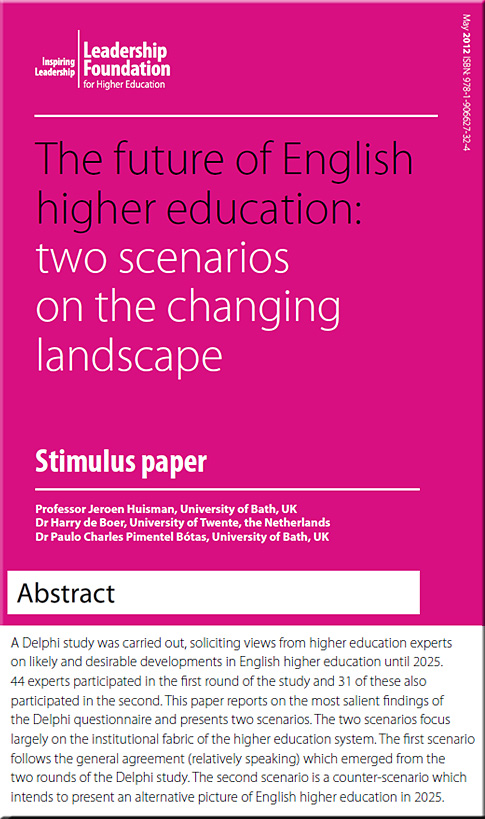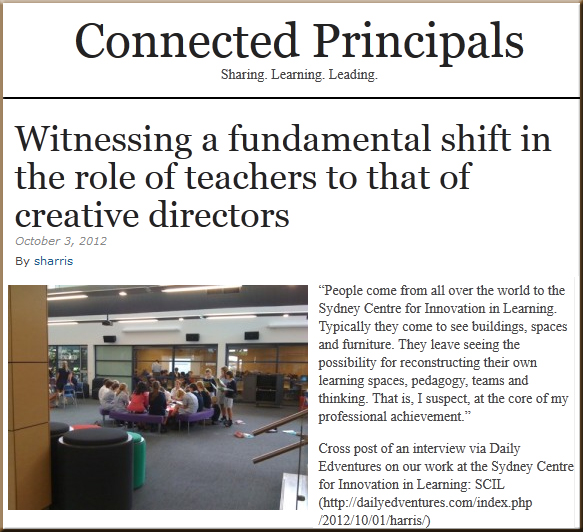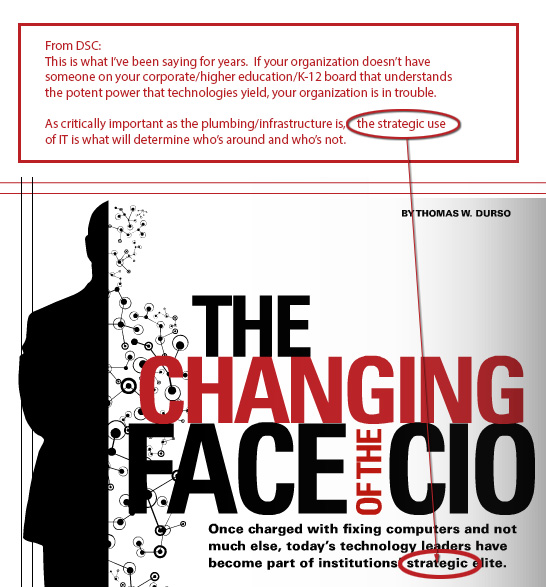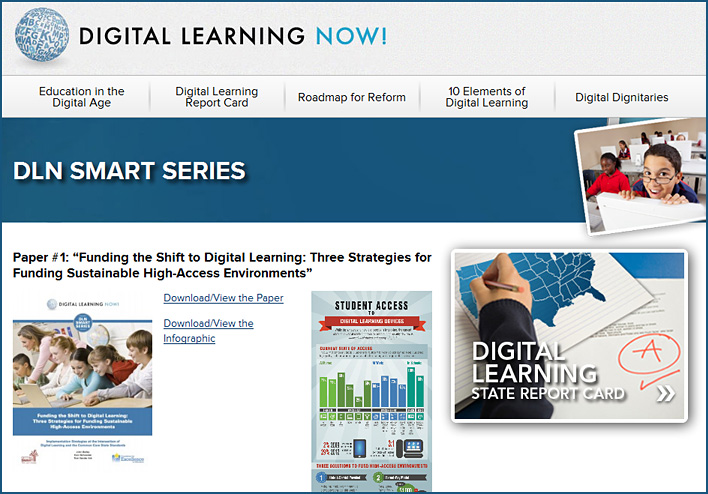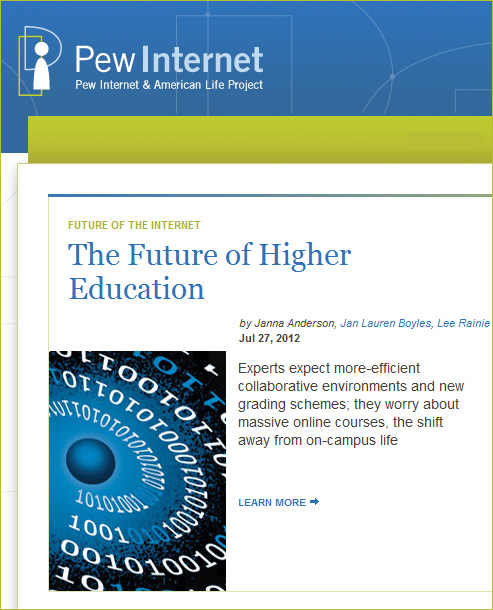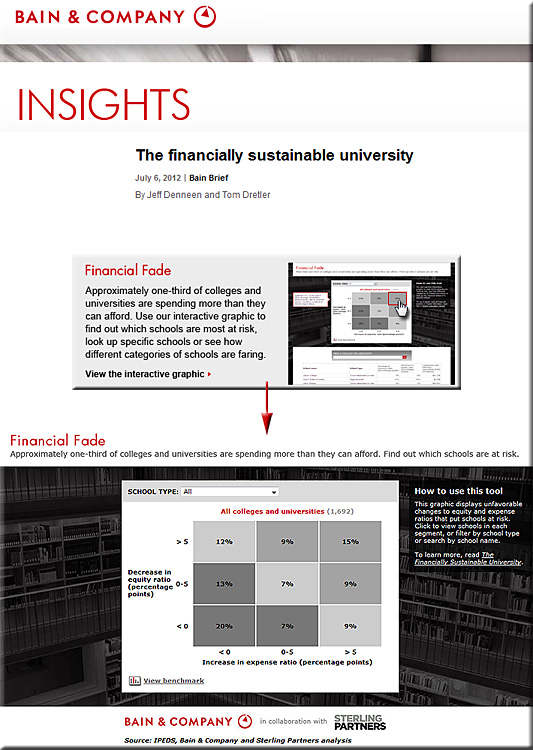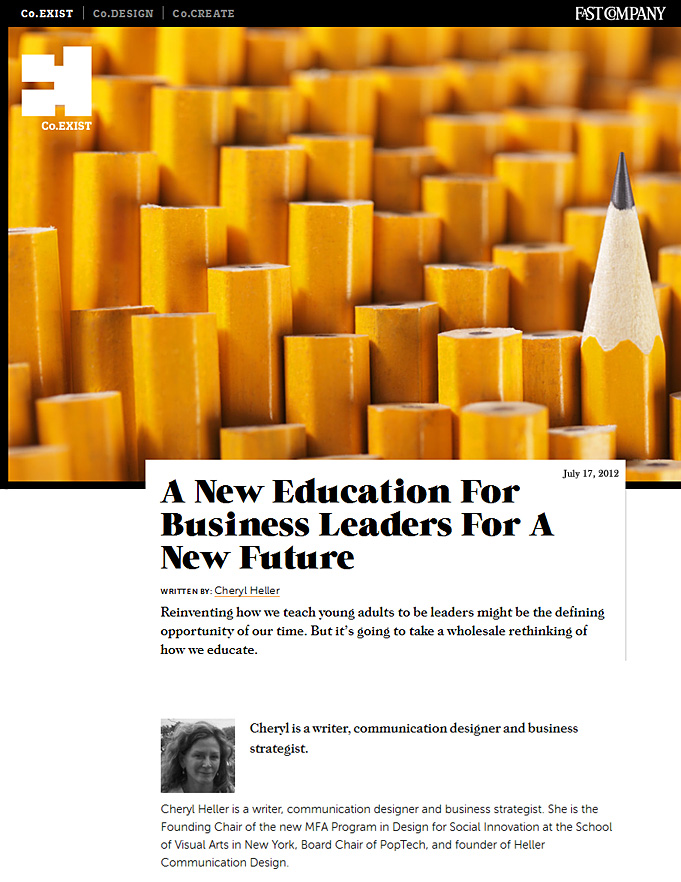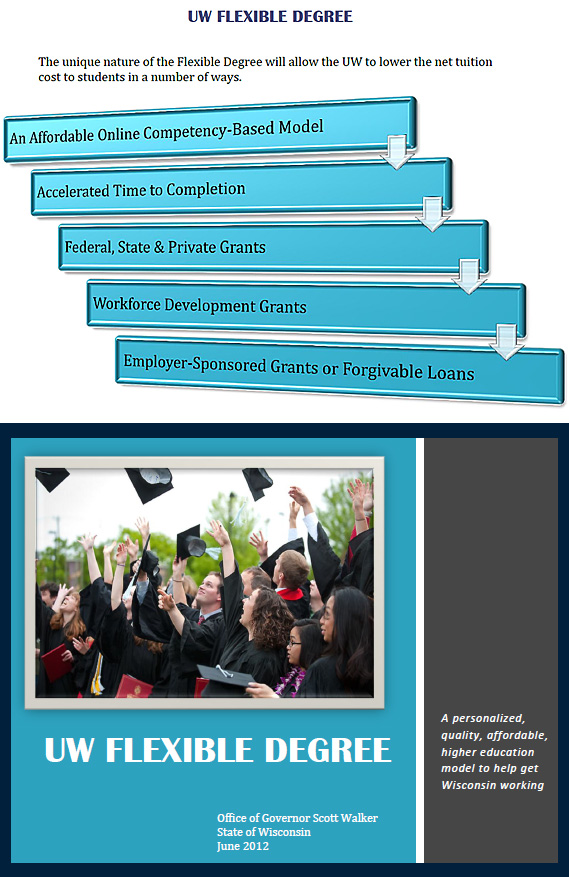From DSC re: the item below — an example of the opposite of true leadership
(To see an example of TRUE leadership, see my immediately previous posting re: Christensen and Eyring.)
Give colleges more credit — Op-Ed at the LA Times by Barry Glassner and Morton Schapiro
Doomsayers are wrong. America’s higher-education model isn’t broken.
Barry Glassner is president, and a professor of sociology,
of Lewis & Clark College in Oregon.
Morton Schapiro is president, and a professor of economics,
of Northwestern University in Illinois.
From DSC:
I was going to title this posting “‘America’s higher-education model isn’t broken.’ Easy for you to say Morton and Barry.”
An excerpt from their article (emphasis DSC):
While for-profit colleges enroll an increasing percentage of all undergraduates, the demand for education at selective private and public universities and colleges continues to grow, as evidenced by dramatic declines in the percentage of applicants they admit.
Nice. Let’s see how many people we can decline — that’s a great way to serve our society! Then let’s pride ourselves on this shrinking percentage of people who actually get into our university. Woo hoo! That will help with our ever-important ratings/prestige/branding even more! (Please note: The dripping sound that you are now hearing is the sound of drops of sarcasm hitting the floor.)
A few brief questions for you Barry and Morton…
- When was the last time you lived from paycheck to paycheck?
- Do you know what that’s like?
- Have you ever been in that situation? If so, when was the last time?
You two are so far removed from the society — that you say that you are trying to help and serve — that you don’t even recognize the strength of the current that you’re swimming in. You swim with — and serve — the 1% (not the 99%).
One other thing worries us. There is a surefire way to make today’s dire predictions come to pass — if educational leaders feel compelled to listen to scaremongers who are all too anxious to force us to adopt a new model that eliminates outstanding professors and their passion for teaching, research budgets and the pursuit of new knowledge, the residential college experience and the core commitment to excellence that have made American higher education the leader in the world. If that were to happen, we might end up with colleges and universities that aren’t worth saving.
For transparency’s sake, I attended Northwestern University — and did very well there. It’s a great school in many ways. But I wonder what the percentage of professors are at NU who are there to work on being the best professors/teachers that they can possibly be. I question how many have a true passion to teach. Research? Yes. Teach? Not so much.
In fact, from my experiences at NU, I remember several graduate students grading my work or teaching our classes. Speaking of those folks…I wonder…were those graduate students trained in teaching and learning? Were they given a background in any sort of School of Education? Or pedagogical training? BTW, those same questions can be asked of NU’s full-time, tenured faculty members; and I’ll bet you that the answers are not pretty. Also, in many other of the courses I took at NU, I had hundreds of students in them so I seriously doubt that any of my professors even knew who I was.
BTW, what does a year at NU cost these days? From what I can tell from NU’s website, roughly $60,000+ for 3 quarters worth of tuition, room, board, and associated fees.
The system’s not broken you say…hmmm…seems to me I have to pay the price of a pretty darn nice house in order to get an undergraduate degree at your place. But then they tell me that an UG degree isn’t worth much these days…that what you really need is graduate work to get a good job. Hhhmmmm…
Northwestern and other universities and colleges like it have strayed far off the noble path from which they began their journeys. Look out for #1 has not only been Northwestern University’s motto these last few decades (replacing the long held Quaecumque Sunt Vera motto) , it is the unofficial teaching/undercurrent that it delivers to its students year in and year out.









